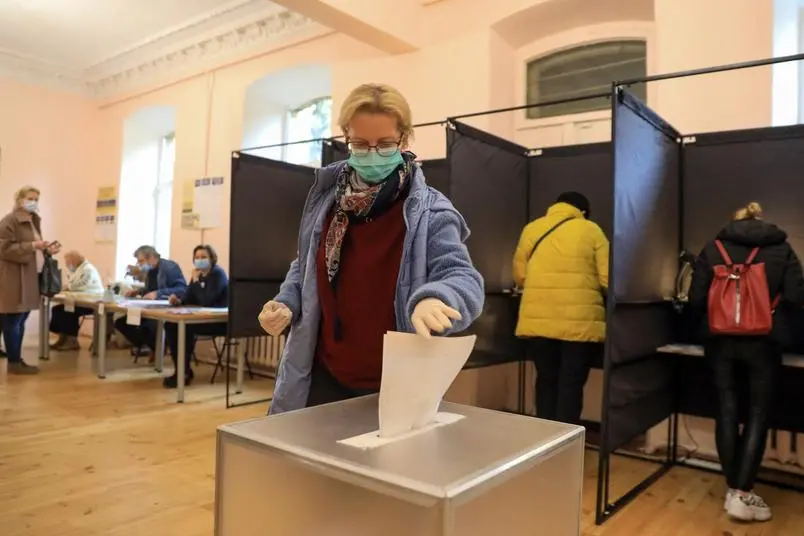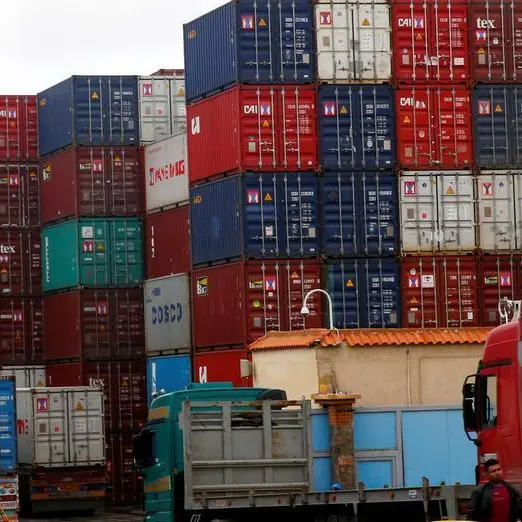PHOTO
Voter turnout is diminishing around the world and the results of elections are increasingly questioned, a report on the state of democracy said Tuesday.
Between 2008 and 2023, global voter turnout fell by 10 percentage points, from 65.2 to 55.5 percent, according to an annual report by Stockholm-based intergovernmental organisation International IDEA.
The problems that affect "young democracies" are also affecting "remarkably very old and consolidated democracies" in Europe and America, Kevin Casas-Zamora, Secretary General of IDEA International, told AFP.
Of the 173 countries covered by the think-tank, nearly half of them also show "a very severe decline in at least one absolutely crucial element of democracy," such as the ability to hold credible elections or freedom of the press, Casas-Zamora added.
In the United States, three indicators are down since 2015: credible elections, civil liberties and political equality, according to the report.
In addition, less than half the US population (47 percent) believes that the 2020 elections were "free and fair," according to a study published by IDEA in April -- before the July assassination attempt against US former president and presidential candidate Donald Trump.
- 'Cynical attempts' -
In addition to polarisation, the United States also faces the challenge that much of its electorate does not consider the electoral processes and election results credible, Casas-Zamora noted, while resorting to political violence is seen as more legitimate.
On January 6, 2021, thousands of Donald Trump's supporters stormed the US Capitol, galvanised by Trump's refusal to recognise Joe Biden's victory.
According to Casas-Zamora, sowing doubts about "credible, robust electoral processes and results" is not confined to the United States.
When political leaders refuse to recognise the credibility of an election or take the initiative of challenging it in court, "it sends an important signal to voters," the report noted.
"In some cases, such signals convey legitimate concerns about an election; in others, they are cynical attempts to erode public faith in an opponent's victory," it said.
Between mid-2020 and mid-2024, the results of one in five elections were rejected by a losing candidate or party in the countries studied by IDEA, and opposition parties boycotted one in ten elections.
In Venezuela, opposition candidate Edmundo Gonzalez Urrutia contested the re-election of President Nicolas Maduro on July 28 -- with Urrutia exiled in Spain since September 8.
- 'Checks and balances' -
The election result was not recognised by the United States, the European Union and several Latin American countries -- including some of Caracas' historic allies.
"Everything I see tells me that Maduro has decided to turn Venezuela into North Korea if that's what it takes to remain in power," Casas-Zamora told AFP.
The report also notes a disheartening state of the world, where wars, global warming and social inequalities serve to fuel the erosion of democracies.
"I am absolutely positive that a fully democratic Russia would have not invaded Ukraine," said Casas-Zamora.
"There would have been enough checks and balances to prevent the war of aggression against Ukraine from happening," he continued.
The head of the think-tank said he hoped "that it comes to be understood that supporting democracy is a key element of any long-term, well-thought-out security strategy."
Despite the bleak picture painted by the report, there are glimmers of hope, according to Casas-Zamora, such as successful elections followed by peaceful transfer of power in Guatemala, India, Poland and Senegal.
The data for 2024, which IDEA has dubbed an "election super-cycle" year -- where half the world's population will have had the chance to go to the polls -- will be analysed in detail in an upcoming report.





















